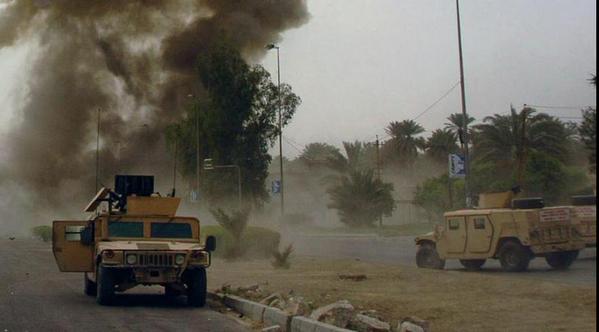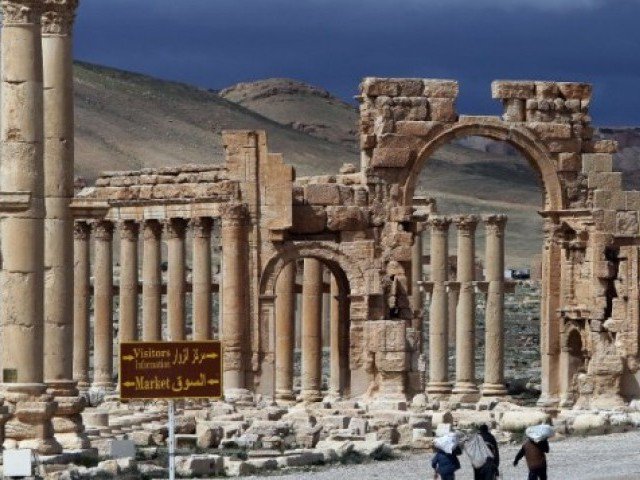Death toll in Sinai rises to 50 as jihadists attack Egypt’s army
“Islamic State-linked group claims massive coordinated assault in northern peninsula; fight for Sheikh Zuweid police station ongoing”
Islamic militants on Wednesday unleashed a wave of simultaneous attacks, including suicide car bombings, on Egyptian army checkpoints in the restive northern Sinai Peninsula, killing at least 50 soldiers, security and military officials said.
The coordinated morning assaults in Sinai came a day after Egypt’s president pledged to step up the battle against Islamic militants and two days after the country’s state prosecutor was assassinated in the capital, Cairo.
The scope and intensity of the attacks underscored the resilience and advanced planning by the militants who have for years battled Egyptian security forces in northern Sinai but intensified their insurgency over the past two years just as the government threw more resources into the drawn-out fight.
The Islamic State-linked Ansar Bayt al-Maqdis terror group claimed responsibility for Wednesday’s attacks, saying its fighters targeted a total of 15 army and police positions and staged three suicide bombings, two of which targeted checkpoints and one that hit an officers’ club in the nearby city of el-Arish.
The authenticity of the claim could not be immediately verified but it was posted on a Facebook page associated with the group.
Except for the attack at the officers’ club, the rest took place in the town of Sheikh Zuweid and targeted at least six military checkpoints, the officials said. The militants also took soldiers captive and seized weapons and several armored vehicles, they added, speaking on condition of anonymity in line with regulations.
At least 55 other soldiers were wounded, the officials said. As fighting raged, an army Apache gunship destroyed one of the armored carriers captured by the militants as they were driving it away, the officials added.
Egypt’s military spokesman, Brig. Gen. Mohammed Samir, said fighting was still underway in the area between the armed forces and the militants.
Officials said scores of militants were besieging Sheikh Zuweid’s main police station, shelling it with mortars and rocket-propelled grenades and exchanging fire with dozens of policemen inside. A source in the city rebuffed reports that the town had fallen to the jihadists, Daily News Egypt reported, saying that only the police station was under siege.
Samir’s statement put the number of soldiers killed so far at 10, but the conflicting numbers could not immediately be reconciled in the immediate aftermath of the attack.
A reporter for Sky News Arabia put the Egyptian army death toll as high as 60.
Samir’s statement, posted on his official Facebook page, said some 70 militants attacked five checkpoints in northern Sinai and that Egyptian troops killed 22 of them and destroyed three all-terrain vehicles fitted with antiaircraft guns.
Northern Sinai has over the past two years witnessed a series of complex and successful attacks targeting Egyptian security forces, many of which have been claimed by Ansar, a local affiliate of the Islamic State group which now calls itself the Province of Sinai.
Though the group recently swore allegiance to the Islamic State, analysts say the link between the two groups is weak and was mostly made to raise the Sinai organization’s cache.
The officials said the attackers on Wednesday used mortars, rocket propelled grenades as well as assault rifles. Two of the checkpoints, which were apparently located in close proximity, were completely destroyed.
The attacks come just two days after the assassination in Cairo of the country’s top prosecutor Hisham Barakat. President Abdel-Fattah el-Sissi vowed on Tuesday to step up a two-year crackdown on militants.
Militants in northern Sinai, which borders Israel and the Gaza Strip, have battled security forces for years but stepped up their attacks following the July 2013 military ouster of Islamist President Mohammed Morsi after days of mass street protests against his rule.
Sissi, then the nation’s army chief, led the ouster and went to become Egypt’s president, winning a landslide election a year ago.
Wednesday’s attacks came in swift response to Sissi’s pledge the previous day to carry out justice for the prosecutor general’s assassination — and possibly move to execute Muslim Brotherhood leaders, an Islamist group from which Morsi hails.
Pounding his fist as he spoke Tuesday at the funeral of Barakat, who led the prosecution and oversaw scores of cases against thousands of Islamists, Sissi seemed to signal an even tougher campaign on the Brotherhood, Egypt’s oldest Islamist group that is now outlawed and declared a terrorist organization.
The attacks likely mean that Egypt will close the Rafah crossing between the Sinai and the Gaza Strip, which had recently been opened amid a thaw in ties between Cairo and Hamas, with Egypt praising the Palestinian group’s moves to crack down on Salafi groups.
Speaking to The Times of Israel recently, a senior Egyptian official said the opening had been made possible by the relative quiet in the region, allowing the transfer of much-needed concrete into the Strip.
The official added that five army checkpoints had recently been up between Sheikh Zuweid and Arish, in a sign of the army’s success in cracking down on militants in the region.
It was not immediately clear if those were the same five checkpoints attacked on Wednesday.
The timing of the attack, during the Muslim holy month of Ramadan, may also be significant, coming days after a series of Islamic State linked attacks in Tunisia, Kuwait and France left nearly 70 people dead.
On August 5, 2012, 16 Egyptian soldiers were killed while celebrating the Ramadan iftar meal in a brazen attack by Salafis, who then attempted to breach the border withIsrael.
Since Morsi’s ouster, Egypt has waged a crackdown that has led to thousands of arrests, mass convictions and death sentences. Morsi is among those condemned to die, but has a potentially lengthy appeal process ahead of him.
Sissi said the government was ready to brush aside criticisms and free the judiciary’s hand for a “battle” the country is prepared to wage.
“The judiciary is restricted by laws, and swift justice is also restricted by laws. We will not wait for that,” Sissi said.
Action will be taken within days “to enable us to execute the law, and bring justice as soon as possible,” he said. “We will stand in the face of the whole world, and fight the whole world.”
In a thinly veiled reference to jailed members of the Brotherhood, Sissi blamed the violence on those “issuing orders from behind bars,” and warned: “If there is a death sentence, it will be carried out.”
Times of Israel staff contributed to this report.




